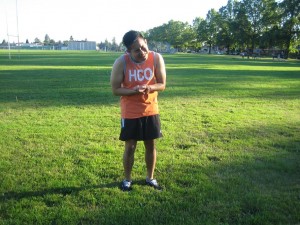When a chigger bites, it inserts a feeding structure and its mouth parts into the skin and inject enzymes that damages the human tissue. The area becomes hardened and the chigger feeds on the skin through the tube if not disturbed.
https://www.youtube.com/watch?v=jH2rAo9m7cA
Chigger bite symptoms
- Severe itchiness of the bitten area for 1-2 days
- A skin bump that looks like a blister or pimple
- A raised or flat red bump on the skin
Treatment

- Take a hot shower immediately after the bite. Scrub the body using soap to remove chiggers from the affected area. Taking a shower can also minimize skin reactions from the bites.
- Apply an antihistamine or topical hydrocortisone cream to lessen the itchiness. Another alternative is taking an oral antihistamine such as Benadryl.
- Apply an ice pack or compress on the bitten area to lessen the itching for at least 10-15 minutes.
- Trim fingernails closely if struggling to stop scratching the bitten area. If accidentally breaking the skin, apply the prescribed antiseptic ointment to prevent infections.
Tips
- When going outdoors especially in areas with plenty of vegetation, spray a non-toxic, skin-friendly bug spray around the waist band, ankles and other tight areas of the body to keep chiggers away.
- Avoid scratching the bite. Just gently slap the area to stop the itchiness.
- Wash clothing using hot water to eliminate any remaining chiggers in the clothing.
- Wear loose fitting long sleeved shirts and long pants when going to areas inhabited by chiggers. Tightly fasten the cuffs and tuck hems of pants into the socks.
